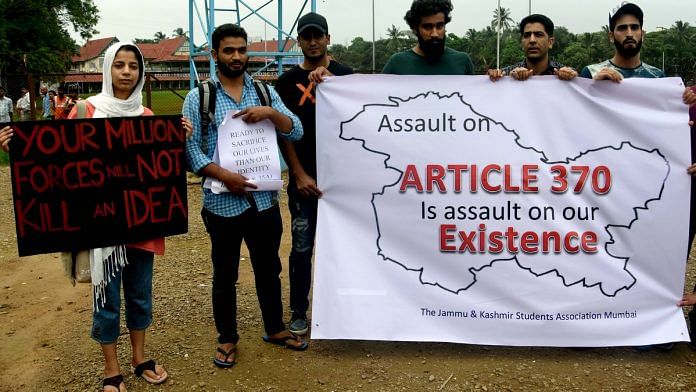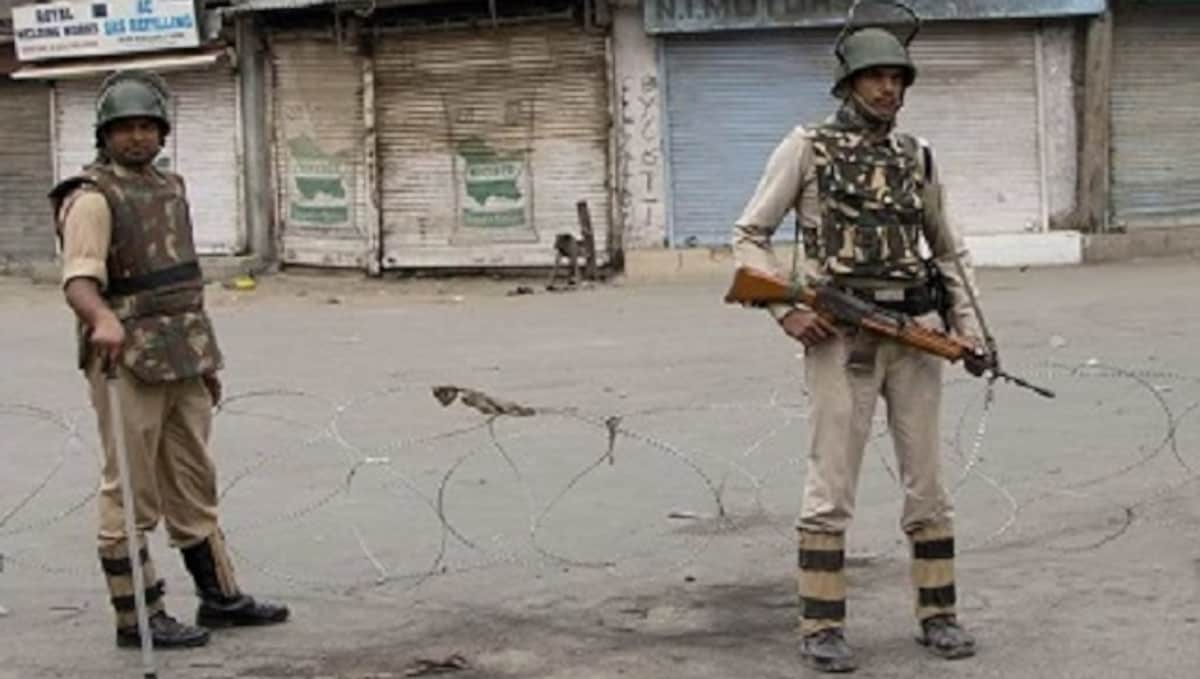The centre abrogated the autonomy given to Jammu and Kashmir under article 370 of the constitution on August 05, 2019.
The article, which has been sacrosanct to the state and gave special rights and privileges to Jammu and Kashmir since 1954, was abrogated, citing several reasons. But one of the reasons that stood out was the rise in militancy leading to an increase in the bloodshed in the valley.
However, the news coming from Jammu and Kashmir in the past few days tell us a different story. In fact, it indicates that violence and resentment have increased after two years of abrogation of the state’s special status.

In the last five days, over seven civilians have been killed in Kashmir. As a result, the security forces launched a massive crackdown against “anti-social elements” in Jammu and Kashmir, detaining more than 500 people for interrogations. The forces have detained 70 youths from Srinagar.
The killings that took place last week aimed to kill people that belong to the minority section of the society. Out of the six civilians killed in the previous five days, four were from minority communities, and six of the deaths took place in Srinagar, the primary urban centre of the valley.
On Thursday, a woman principal and a teacher were shot dead at point-blank range inside a government school in Srinagar.
On Tuesday, a Kashmiri Pandit, Makhan Lal Bindroo, who owned Srinagar’s most famous pharmacy, was shot dead at his shop.

The official data also speaks to this strengthened hatred towards minority communities. A total of 28 civilians were killed by terrorists so far in 2021, and out of these 28 killed, five persons belonged to local Hindu or Sikh communities, and two were non-local Hindu labourers.
Today in an encounter between the security forces and militants, four soldiers and a junior commissioned officer (JCO) were killed in Poonch district’s Dehra Ki Gali (DKG) area.
Army spokesman Lt Colonel Devender Anand said the encounter would not be halted, and it is still underway.
The BJP government claimed that the revocation of article 370 would bring an era of prosperity to the valley. However, a report by human rights organisation Jammu and Kashmir Coalition of Civil Society (JKCCS) in its bi-annual report that came out in 2020 has shown that even one year after that move, there has been no let-up in conflict.
JKCCS data revealed that Kashmir saw 229 killings in 107 incidents of violence during the first six months of this year, besides an uptick in the destruction of residential properties during gunfights between security forces and militants.
With increased repression of fundamental rights like jobs, the internet, school, the anger will grow and lead to more bloodshed if the situation doesn’t change. The suppressed tension in the valley is palpable and needs to be addressed diplomatically.

A report in BBC points out the fact that after two years of revoking article 370, more youth is drawn toward militancy leading to encounters like this a common occurrence. An excerpt from the report says,
‘Since 2019, the government has altered property rights of locals, triggering widespread suspicion among people. Locals fear the new laws will change the demography of India’s only Muslim-majority region. Kashmir has a history of an insurgency against Indian rule, and experts say these recent political changes have exacerbated this anger.’
A senior security official told the BBC that of 200 currently active militants, more than 120 are locals. “Between January and July this year, 76 Kashmiris have picked up arms, and the number is anticipated to increase,” the official said. He said that no new foreign militant had been added to the list of active militants in Kashmir this year.
The report says that the names of the locals get in every day to the list.
Also Read: A game of votes: Bihar politics and the Caste Census
















